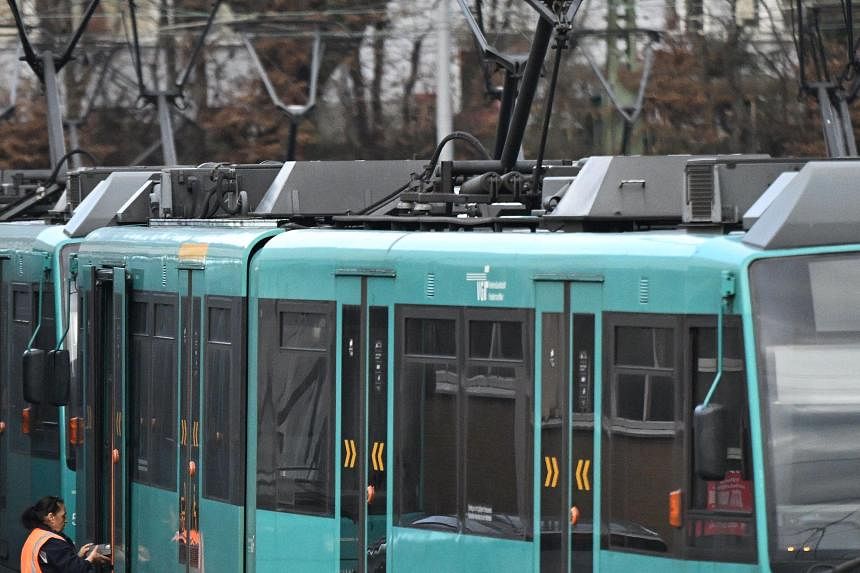NUREMBERG, GERMANY - Seated before the tram’s control panel, Mr Benedikt Hanne, 24, deftly steered the red-and-white wagons, hours before heading to Nuremberg university to study for a social work degree.
As an apprentice, Hanne was watched closely by a trainer, and the tram he drove had no passengers.
But if all goes well, he will soon become a fully fledged tram driver moving people across Nuremberg in the evenings or at weekends, when he does not have classes to attend.
Squeezed by a serious manpower shortage, public transport operators like Nuremberg’s city service VAG have had to find new sources to expand their pool of workers.
The VAG needs to recruit 160 new drivers annually to run its metro, trams and buses.
For Mr Harald Ruben, who heads the company’s recruitment and training team, it was clear that “we won’t reach this target unless we explore all possible possibilities”.
The transport company put out an advertisement targeted at university students, offering a part-time job to drive trams outside of school hours.
To qualify, applicants need a regular driver’s licence, be above 21 years of age, and be “reliable and suitable for driving and shift work”.
Many sectors in Germany, like in other European countries, are suffering from a serious manpower shortage which is expected to worsen unless urgent measures are taken.
Public transport operators have warned that they may have to reduce the number of buses, trams or metros as tens of thousands of jobs are expected to remain vacant in the coming years.
The worker gap has led public transport employees across the country to go on strike in the last weeks to underline their plight, with union Verdi warning of deteriorating conditions.
Many operators are reporting up to 20 per cent to 30 per cent unfilled posts, with shortages contributing to a vicious circle of overworked employees who are then falling ill, exacerbating the situation.
Other German cities such as Mannheim and Munich have also begun tapping students as potential part-timers to fill public transport gaps.
Mr Hanne never thought he would be driving a tram, until a few weeks back, when he spotted the VAG ad.
He applied immediately, he said, and became one of five recruited. In all, VAG received 36 applicants.
Dressed in the red-and-blue uniform of the company, the apprentice drivers are put through an accelerated four-week course that is held during school holidays.
After several hours of theory lessons, the trainees practise on a tram simulator, before moving on to a real tram.
They are also expected to take on extra homework to make up for the accelerated pace of the course, which is half the length of regular training.
After passing a driving test and spending several days accompanied by a trainer, Mr Hanne will be driving a tram alone for 20 hours a week.
Mr Hanne, whose previous part-time jobs included working at a petrol station, said he is unfazed about juggling university courses and work.
“If I can choose, I’d prefer to drive the tram before going to university, so that the day ends with classes,” he said, adding however that he wants “to also work at other times of the day to see different people and situations”.
“It’s just a great feeling, to have all these wagons behind you,” he added.
“My classmates find it really cool, my family, too. They’ll catch my tram some day, that’s for sure.” AFP

